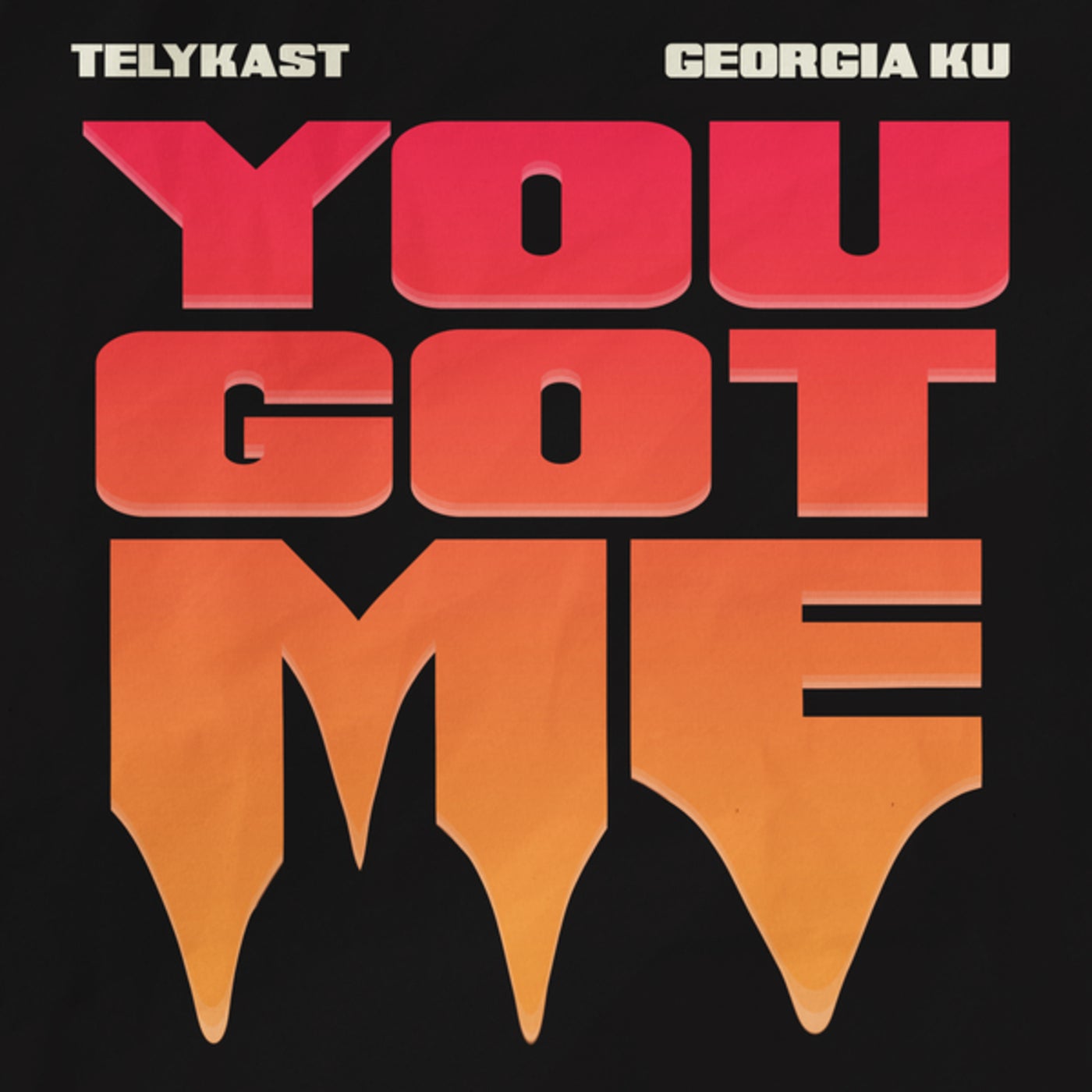You Got Me: The Story, Meaning, And Impact Behind The Phrase
"You got me"—three simple words that pack an emotional punch. Whether it’s used to express vulnerability, acknowledge a clever twist, or convey unwavering support, this phrase has a unique charm and versatility that resonates with people across cultures and contexts. It’s more than just a colloquial expression; it’s a reflection of human connection, trust, and understanding. But have you ever wondered about the deeper meanings, origins, and cultural significance behind these words?
From its use in casual conversations to its appearance in music, movies, and literature, "you got me" has transcended its literal meaning to take on a variety of nuanced interpretations. It can signify surrender, humor, love, or even surprise. Its adaptability has made it a staple in everyday language, and its cultural impact cannot be overstated. But how did this phrase become so universally understood and widely used? And why does it hold such a strong emotional appeal?
In this article, we’ll delve into the story, meaning, and cultural relevance of "you got me." We’ll explore its origins, its use in popular culture, and its impact on interpersonal relationships. From heartwarming anecdotes to thought-provoking insights, we’ll uncover everything you need to know about this fascinating phrase. So, whether you’re a linguistics enthusiast or just curious about the power of words, this comprehensive guide will leave you saying, "You got me hooked!"
- Everything You Need To Know About Paypal Finance Intern Summer 2025
- Mimosa Franklin A Detailed Insight Into Her Life And Contributions
Table of Contents
- What Does "You Got Me" Mean?
- Origin of "You Got Me"
- Why Is "You Got Me" So Popular?
- "You Got Me" in Popular Culture
- How Does "You Got Me" Impact Relationships?
- The Psychology Behind "You Got Me"
- How to Use "You Got Me" Effectively?
- "You Got Me" in Music and Literature
- What Are the Different Interpretations of "You Got Me"?
- Is "You Got Me" Used Globally?
- Can "You Got Me" Strengthen Trust?
- Famous Moments Featuring "You Got Me"
- How Has "You Got Me" Evolved Over Time?
- Frequently Asked Questions About "You Got Me"
- Conclusion
What Does "You Got Me" Mean?
The phrase "you got me" carries multiple meanings depending on the context in which it is used. At its core, it often signifies acknowledgment or surrender. For instance, when someone solves a riddle or catches you in a mistake, responding with "you got me" is a lighthearted way to admit defeat. Similarly, it can also express emotional support, as in the assurance that someone will always be there for you.
Here are some common interpretations of "you got me":
- Admission of being caught off guard or wrong.
- An expression of love, support, or loyalty.
- A humorous acknowledgment of being tricked or surprised.
Its versatility has made it a go-to phrase in various situations, from casual banter to serious conversations. But what makes it truly special is its ability to convey emotions that go beyond words, making it a powerful tool for communication.
- Hamilton Hills A Comprehensive Guide To Life Community And Amenities
- Ultimate Porsche Experience Everything You Need To Know
Origin of "You Got Me"
The exact origin of "you got me" is difficult to pinpoint, as it likely evolved from everyday speech rather than being coined by a specific individual. Linguists suggest that the phrase likely emerged in English-speaking cultures as a colloquial way to express surrender or acknowledgment.
Historically, similar expressions have been used in literature and dialogue to convey the same sentiments. Over time, "you got me" gained popularity due to its simplicity and emotional resonance. Its widespread use in pop culture further cemented its place in modern language.
Why Is "You Got Me" So Popular?
So, why has "you got me" stood the test of time and remained a beloved phrase across generations? The answer lies in its emotional versatility and relatability. Here’s why it’s so popular:
- Universal Appeal: The phrase is easily understood and applicable in various contexts, making it universally relatable.
- Emotional Depth: It conveys complex emotions in just three words, from humor to vulnerability.
- Pop Culture Influence: Its frequent use in movies, music, and literature has solidified its place in everyday language.
"You Got Me" in Popular Culture
"You got me" has made countless appearances in pop culture, from iconic movie lines to chart-topping songs. Its use in creative works often amplifies its emotional impact and connects with audiences on a deeper level. For example:
- In music, the phrase has been used in lyrics to express love and vulnerability.
- In movies, it’s often delivered as a punchline or a heartfelt confession.
- In literature, it serves as a poignant moment of realization or connection.
One famous example is the song "You Got Me" by The Roots, which explores themes of trust and commitment in relationships. Such cultural milestones have contributed to the phrase’s enduring popularity and relevance.
How Does "You Got Me" Impact Relationships?
The phrase "you got me" holds a unique power in relationships, both platonic and romantic. It can serve as a reassurance of loyalty, a declaration of love, or a moment of vulnerability that strengthens bonds. Here’s how it impacts relationships:
- Builds Trust: Saying "you got me" signals that you’re willing to be open and honest, which can foster trust.
- Encourages Support: It reassures the other person that you’re there for them, no matter what.
- Deepens Emotional Connections: Sharing moments of vulnerability through this phrase can bring people closer together.
The Psychology Behind "You Got Me"
Why does "you got me" resonate so deeply with people? The answer lies in psychology. At its core, the phrase taps into basic human emotions and needs, such as the desire for connection and understanding. Here are some psychological factors at play:
- Empathy: The phrase often reflects an understanding of the other person’s perspective.
- Vulnerability: Admitting "you got me" requires a level of openness that fosters trust.
- Affirmation: It serves as an affirmation of the bond between individuals.
How to Use "You Got Me" Effectively?
Using "you got me" effectively requires understanding the context and the emotions you want to convey. Here are some tips:
- Be Genuine: Authenticity is key when using this phrase to express emotions.
- Choose the Right Moment: Use it in situations where it feels natural and meaningful.
- Consider Tone: Your tone can change the meaning of the phrase, so be mindful of how you say it.
"You Got Me" in Music and Literature
From heartfelt ballads to best-selling novels, "you got me" has left its mark on the world of music and literature. Songs like The Roots’ "You Got Me" and novels featuring the phrase in poignant dialogues showcase its emotional depth and cultural significance.
What Are the Different Interpretations of "You Got Me"?
The beauty of "you got me" lies in its ambiguity. Depending on the context, it can mean:
- Admission of being caught or tricked.
- Expression of emotional vulnerability.
- Reassurance of loyalty and support.
Is "You Got Me" Used Globally?
Yes, "you got me" is widely understood and used across the globe, particularly in English-speaking countries. Its universal appeal stems from its simplicity and emotional resonance, making it a staple in everyday conversations.
Can "You Got Me" Strengthen Trust?
Absolutely. By expressing vulnerability and acknowledgment, "you got me" can strengthen trust and deepen relationships. It’s a powerful way to show that you value honesty and connection.
Famous Moments Featuring "You Got Me"
From movie scenes to real-life speeches, "you got me" has been featured in numerous memorable moments. These instances highlight its emotional impact and cultural relevance.
How Has "You Got Me" Evolved Over Time?
The phrase has evolved from a simple expression of acknowledgment to a multifaceted tool for communication. Its adaptability has ensured its continued relevance in modern language.
Frequently Asked Questions About "You Got Me"
1. What does "you got me" mean in a romantic context?
In a romantic context, "you got me" often signifies love, loyalty, and emotional vulnerability.
2. Can "you got me" be used humorously?
Yes, it’s often used humorously to admit being caught off guard or tricked.
3. Is "you got me" a modern phrase?
While its widespread use is modern, similar expressions have existed for centuries.
4. How can I use "you got me" in everyday conversation?
Use it to express acknowledgment, humor, or emotional support, depending on the context.
5. Does "you got me" have equivalents in other languages?
Yes, many languages have similar phrases that convey acknowledgment or support.
6. Why is "you got me" so emotionally impactful?
Its emotional impact lies in its ability to convey complex feelings in just three words.
Conclusion
"You got me" is more than just a phrase—it’s a testament to the power of language to convey emotion, build connections, and create memorable moments. Its simplicity and versatility have made it a cornerstone of modern communication, and its cultural significance continues to grow. Whether you’re using it to admit defeat, offer support, or express love, this phrase has a timeless appeal that transcends boundaries and brings people closer together. So, the next time you hear or say "you got me," remember that it’s more than just words—it’s a reflection of human connection at its finest.
- A Closer Look At Nandos Mesa Achievements Impact And Legacy
- New York Style Meets Functionality The Ultimate Guide To The New Yorker Tote Bag

Watch You Got Me Twisted! (2023) Free Movies Tubi

Ku, TELYKast You Got Me [Casablanca new/Republic Records